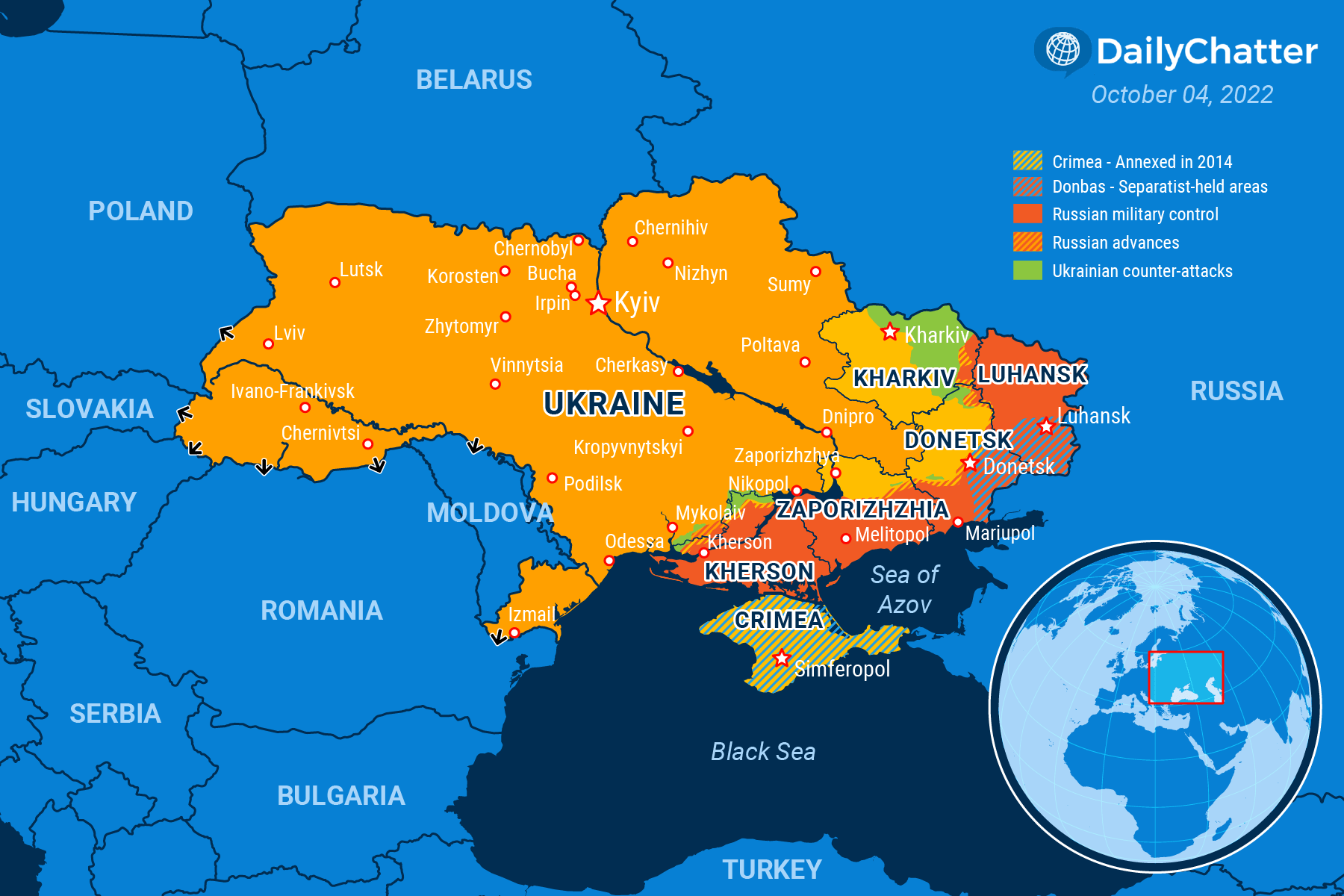Need to Know
November 02, 2022Beaten, Not Broken
Ukraine

|
Listen to Today's Edition
|
Mercenaries from the Russian military contracting firm the Wagner Group held their ground around the eastern Ukrainian town of Bakhmut last week. They kept attacking even as Ukrainians pushed back other Russian forces. As Forbes wrote, the Wagner fighters’ arguably foolhardy bravery might have been a public relations stunt to gain more influence in Moscow. In any case, Ukrainian soldiers are now holding out against the mercenaries who are trying to retake the ground Russians lost, reported Radio Free Europe.
Bakhmut has come to symbolize the slugfest between the two former Soviet republics of Russia and Ukraine, even as ominous talk of a nuclear exchange persists. The conflict has not yet become a war of attrition if only because Russia has mobilized mass numbers of conscripts and paid for more guns for hire, Newsweek noted. But the economic effects of the war and their impact on the two countries’ war machines are becoming clearer by the day.
The destruction wrought by Russian attacks on Ukraine’s energy infrastructure, for example, heralds a long and cold winter in Ukraine. As the Washington Post explained, electrical system specialists were likely directing where the missiles should hit in order to cause the most damage. A third of Ukraine’s transmission stations have been wrecked.
Iranian military advisors who are probably from the Islamic Revolutionary Guard Corps are helping Russians fly Iranian-made drones against Ukrainian targets, marking the Islamic Republic’s first foray into European warfare, added Foreign Policy magazine. The drones have also been targeting civilian infrastructure. Iran denies involvement but the Europeans don’t buy it.
The rebuilding effort will take generations and cost more than $350 billion. And the war is not yet over. Ukrainian leaders understandably are issuing desperate pleas for economic, humanitarian, and military aid, the Wall Street Journal reported. Ukrainian President Volodymyr Zelenskyy has asked for Western leaders to give him Russian assets that they’ve seized in their countries, too, added Time magazine. There was talk about a “new Marshall Plan” for Ukraine at a meeting of European officials last week, the Associated Press reported.
Russia is also suffering, however. Estonian Prime Minister Kaja Kallas told Politico that Russia is reaching a political, military, and economic breaking point due to Western sanctions, diplomatic isolation, and the military expenditures and losses associated with fighting. Recently, the once-in-the-shadows leader of the Wagner Group, Yevgeniy Prigozhin, rebuked Russian President Vladimir Putin about the “bungled” war effort. Even Putin recently made a rare acknowledgment that his country was facing “economic difficulties,” France 24 pointed out.
Writing in the Guardian, University of Toronto political scientist and Atlantic Council senior fellow Carla Norrlöf argued that the world should not be “fooled” by Russian power. Western nations are set to deny insurance to ships carrying Russian oil unless their oil is sold under a price cap. Such moves will further strangle the exports that are keeping the Russian economy afloat, she argued.
The Wagner Group might still be Putin’s fittest and most loyal fighting force. But at the end of the day, they will still need to be paid.
Not already a subscriber?
If you would like to receive DailyChatter directly to your inbox each morning, subscribe below with a free two-week trial.
Support journalism that’s independent, non-partisan, and fair.
If you are a student or faculty with a valid school email, you can sign up for a FREE student subscription or faculty subscription.
Questions? Write to us at hello@dailychatter.com.

